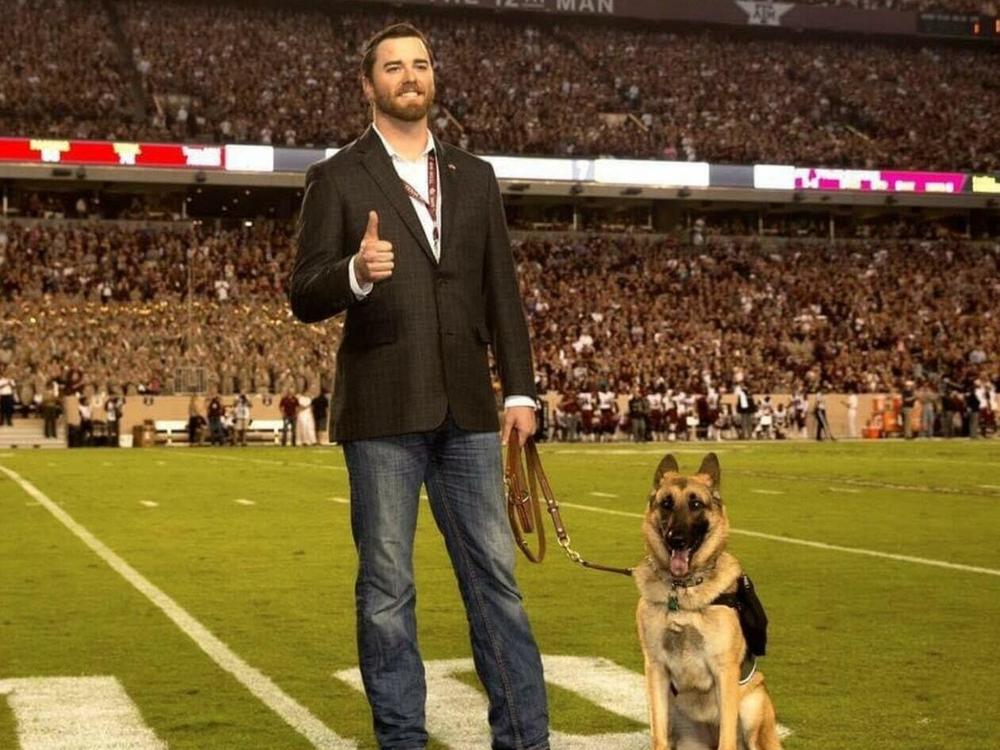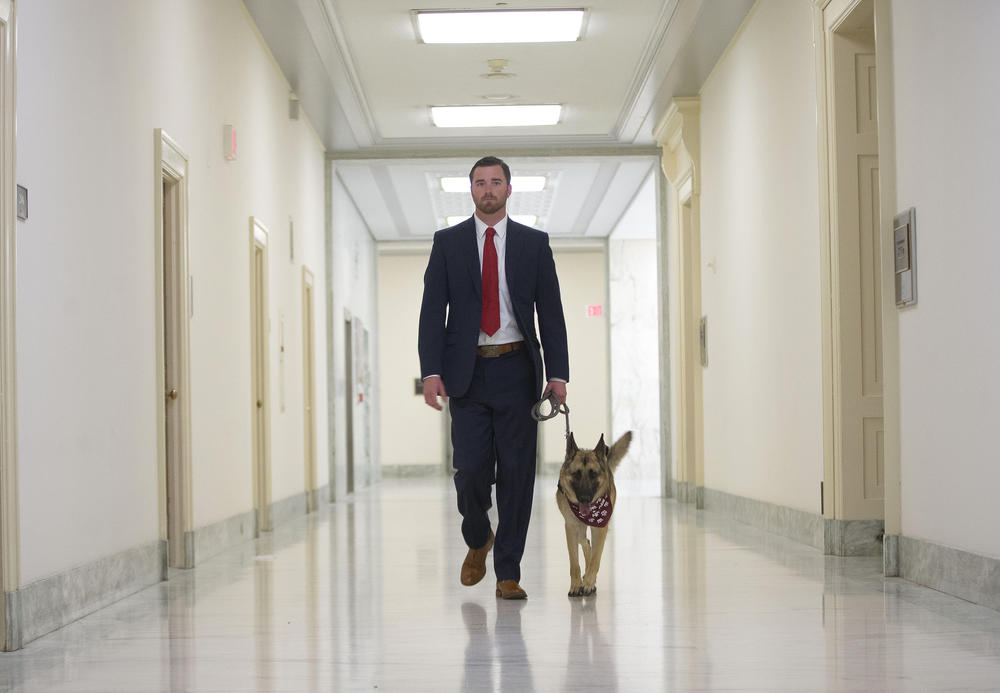Section Branding
Header Content
Kaya, a furry ambassador for veterans and service dogs, has died
Primary Content
If you or someone you know may be considering suicide, contact the National Suicide Prevention Lifeline at 1-800-273-8255 (En Español: 1-888-628-9454; Deaf and Hard of Hearing: 1-800-799-4889) or the Crisis Text Line by texting HOME to 741741.
Kaya, a smart and intuitive German shepherd, died on Feb. 4. A few months shy of 9 years old, she became an ambassador for service dogs and veterans' mental health across the U.S.
"Kaya greatest legacy is — and always will be — the veterans who reached out and told me that she inspired them to get their service dog," Cole Lyle, Kaya's owner, told NPR. "And if they hadn't, they would have killed themselves."
After returning from Afghanistan, the veteran Marine corporal found that medication only exacerbated his PTSD symptoms over the years. Searching for another solution, he adopted Kaya in 2014. He said he instantly connected with her.
"She was an extremely smart dog, even from the very beginning," Lyle said. "I mean, it only took me two days to potty train her. And she was always very intuitive."
Kaya became integral to the work Lyle began with Mission Roll Call, a nonpartisan advocacy group for veterans. She stood by his side when he spoke before Congress in 2016, advocating for service dogs as PTSD treatment. Alongside Lyle, the furry companion lobbied for historic legislation that helps fund service dogs for others struggling with mental health, known as the Puppies Assisting Wounded Servicemembers (PAWS) Act. President Joe Biden signed the bill into law in 2021.
"I wouldn't be doing what I do now if it wasn't for Kaya," Lyle said. "I didn't ever really intend to get involved in veteran advocacy. With Kaya, and coming up here, I just saw a need that needed to be filled. And nobody was filling it."
However, around Christmas time last year, Lyle said he noticed an abnormal growth on her front right leg. The discovery, and further medical testing, led to a cancer diagnosis. Lyle learned that even medical intervention, including radiation therapy, could only prolong her life for a few more months.
"I just didn't want her to be in pain, or continue to be stressed out going to veterinary appointments," he said. "So I made the excruciating decision to take her home."
Lyle flew Kaya back to her home state of Texas, where the two met. While on the plane, a Southwest Airlines pilot shared Kaya's story with the rest of the passengers, who broke into applause. When the pair left the plane, the entire terminal also cheered for her.
The video, posted on the airline's TikTok account, went viral, receiving millions of views.
"Throughout her career, Kaya flew with us over 250 times to help establish the PAWS Act, which united veterans with service dogs," the airline captioned the video. "We are so grateful to be a part of her legacy, and we thank her and her owner, Cole, for their many years of service."
Lyle also documented the journey — from Kaya's diagnosis, to the plane ride and eventual return to Dallas — on social media.
"I certainly had no idea the extent to which it would resonate with people, and that people would want to be supportive," he said. "I really want to acknowledge the people that took really good care of her, and made her feel comfortable and wanted to honor her in her last few days for all of her work, and everything she's done for me, and for veterans across the country."
After spending time with friends and family at a local Dallas pub, Lyle drove Kaya to some of her favorite places in the area, including Texas A&M University, where Lyle graduated. They spent their final few hours together by a pond that had been a favorite study spot of his.
Lyle said he hopes people remember the work she did to help advocate for mental health resources for veterans.
"I just laid with her for several hours, and told her how much I loved her and how loved she was," he said. "I just wanted her to feel comfortable and happy in her last few hours."
Copyright 2023 NPR. To see more, visit https://www.npr.org.


